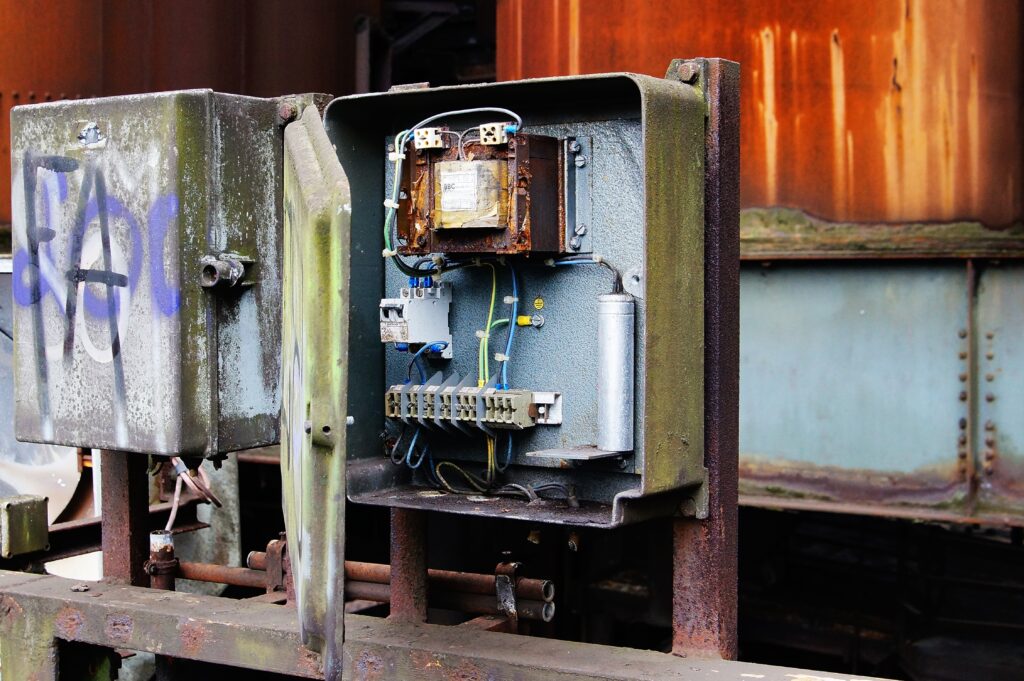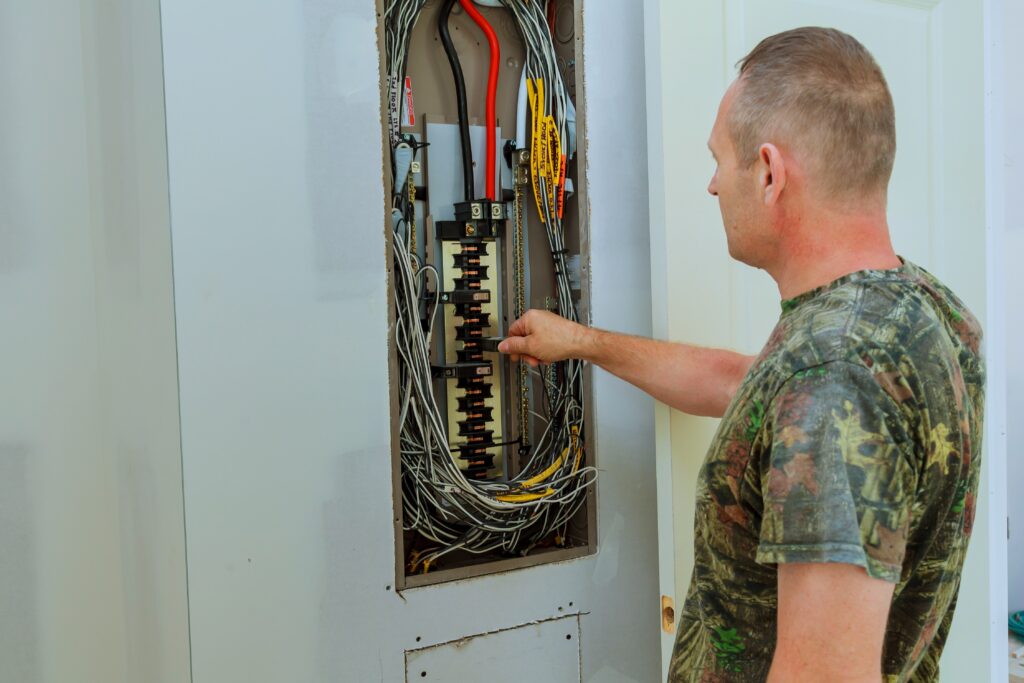Recognizing the warning signs of electrical panel failureis essential for every homeowner committed to maintaining a safe living environment. Many people have faced flickering lights or circuit breakers that trip unexpectedly, often brushing these off as minor annoyances. However, these seemingly small issues can signal significant problems within your electrical panel. Understanding these warning signs allows you to take proactive steps, potentially saving you from expensive repairs and ensuring the safety of your home’s electrical system. In this article, we will delve into the key indicators of electrical panel failure, the importance of regular inspections, and practical actions you can take if you detect any alarming signs. By staying informed, you can protect your home and loved ones from electrical hazards. Keep reading to discover how to identify and address these crucial issues!
Understanding Electrical Panel Failures
Electrical panels play a vital role in ensuring the safe and efficient distribution of electricity throughout your home. As the central hub, they manage the flow of electrical power from the utility provider, routing it to various circuits that supply energy to your appliances and devices. However, like any mechanical system, electrical panels are subject to wear and tear over time, and several factors can contribute to their failure.
Common Reasons for Electrical Panel Failures
Understanding the common causes of electrical panel failures is crucial for homeowners to prevent safety hazards and costly repairs. Key factors include:
- Age of the Panel:Older panels may not meet current electrical codes and can struggle to handle modern electrical loads.
- Wear and Tear:Continuous use can lead to degradation of components, resulting in potential failures.
- Overloading:Exceeding the panel’s capacity by adding too many circuits or appliances can cause overheating and tripping.
- Poor Installation:Incorrect installation practices can lead to faulty wiring and increased risk of failure.
- Environmental Factors:Exposure to moisture, heat, or dust can compromise the integrity of electrical panels.
To ensure safety and prolong the lifespan of your electrical system, consider implementing the following strategies:
- Regular Electrical System Maintenance:Schedule routine inspections with licensed electricians to identify and address potential issues.
- Follow Residential Electrical Safety Tips:Adhere to safety guidelines, such as using the correct wattage for light bulbs and avoiding overloading outlets.
- Upgrade When Necessary:If your electrical panel is outdated or frequently trips, it may be time for an upgrade to a more efficient and reliable model.
Top Warning Signs of Electrical Panel Failure

Being aware of the warning signs of electrical panel failure is essential for homeowners. Early detection can prevent minor issues from escalating into serious safety hazards, ensuring a reliable electrical system. By understanding these signs, homeowners can take swift action and seek professional assistance when necessary.
Flickering Lights
Flickering lights are one of the most common indicators of electrical problems within a home. This issue may suggest signs of panel issuesor overloaded circuits, leading to significant disruptions in daily activities. Here are key considerations regarding flickering lights:
- Potential Causes:
- Inadequate Power Supply:Insufficient power flow can lead to dimming or flickering when multiple appliances are in use.
- Faulty Wiring:Damaged or outdated wiring can create unstable connections, causing lights to flicker.
- What to Do:
- If you notice flickering lights, consider scheduling an inspection with a licensed electrician to diagnose the underlying issue.
Frequent Circuit Breaker Trips
If circuit breakers trip frequently, it’s a strong circuit breaker warning signthat something is amiss within your electrical panel. This condition can indicate several issues that require immediate attention:
- Possible Indicators:
- Overloaded Circuit:Excessive demand on a single circuit can cause breakers to trip to prevent overheating.
- Failing Breaker:An aging or defective circuit breaker may not function correctly, leading to frequent interruptions.
- Action Steps:
- Homeowners should consult a qualified electrician to assess the load on each circuit and determine if the panel needs an upgrade or reconfiguration.
Burning Smell or Scorch Marks
A burning smell or scorch marks around the electrical panel are serious warning signs that should not be ignored. These symptoms can indicate electrical panel problemsthat pose significant fire hazards. Consider the following:
- Potential Risks:
- Overheating Components:Prolonged exposure to excessive current can cause components to overheat, leading to melted insulation or scorched surfaces.
- Faulty Wiring:Poorly connected wires can create arcing, resulting in burning odors or visible scorch marks.
- Recommended Actions:
- If you experience these symptoms, prioritize safety by turning off the power to the panel and contacting a licensed electrician immediately.
Discolored Panel or Outlets
Discoloration of the electrical panel or nearby outlets can signal potential problems that homeowners should address promptly. This common electrical panel failuresymptom often results from overheating or electrical arcing. Key points to consider include:
- Signs of Trouble:
- Heat Damage:Darkened areas around outlets or the panel may indicate overheating, which can lead to further damage.
- Electrical Arcing:Poor connections can cause arcing, resulting in discoloration and potential safety risks.
- What to Do:
- Regularly inspect your electrical panel and outlets for signs of discoloration. If you notice any changes, consult a qualified electrician to assess and rectify the issue.
Age of the Electrical Panel
The age of the electrical panel plays a crucial role in its functionality and reliability. Panels older than 20 years are at a higher risk of failure and may not comply with current electrical codes. Consider the following:
- Importance of Age:
- Outdated Technology:Older panels may lack modern safety features and capacity to handle today’s energy demands.
- Increased Risk of Failure:Aging components are more susceptible to wear and degradation, making regular inspections vital.
- Next Steps:
- Understanding how preventing electrical panel failurerelates to the panel’s age can help homeowners determine if it’s time for an upgrade or replacement. Consulting with a licensed electrician can provide clarity on necessary upgrades for safety and efficiency.
Importance of Regular Electrical Panel Inspections
Routine inspections of electrical systems are vital to maintaining safety and performance in any household. Regular electrical panel inspectionsallow homeowners to identify potential issues before they escalate into significant problems, such as electrical fires or system failures. These proactive measures not only ensure the longevity of your electrical system but also enhance overall home safety and reliability.
Key Benefits of Regular Inspections
- Early Detection of Issues:Identifying wear and tear or faulty components early can save homeowners from costly repairs and dangerous situations.
- Compliance with Safety Standards:Regular inspections help ensure that electrical systems adhere to local codes and safety regulations.
- Improved Energy Efficiency:Well-maintained electrical panels operate more efficiently, potentially lowering energy bills and minimizing environmental impact.
- Increased Property Value:A safe and efficient electrical system can enhance a home’s market value, making it more appealing to potential buyers.
How to Address Electrical Panel Issues

If homeowners notice any warning signs of electrical panel failure, prompt action is essential to mitigate risks and maintain safety. Taking immediate steps can help prevent minor issues from escalating into serious problems that compromise the safety of the home.
Call a Licensed Electrician
Engaging a licensed electricianis critical for addressing electrical issues effectively. Here’s why professional help is indispensable:
- Expert Diagnosis:Licensed electricians have the training and experience to diagnose electrical problems accurately, ensuring safe and efficient repairs.
- Adherence to Safety Standards:Professionals ensure that all repairs align with home electrical safety standards, protecting residents from potential hazards.
- Comprehensive Solutions:Electricians can provide tailored solutions that address the root cause of issues, rather than just treating symptoms.
Perform Regular Maintenance Checks
Conducting regular maintenance checks is crucial for the longevity and reliability of electrical systems. Regular electrical system maintenancecan help identify wear and tear, ensuring optimal performance. Key practices include:
- Visual Inspections:Homeowners should routinely check for signs of damage, such as frayed wires, rust, or discoloration around the panel.
- Testing Breakers and GFCIs:Regularly test circuit breakers and Ground Fault Circuit Interrupters (GFCIs) to ensure they function properly.
- Professional Evaluations:Schedule periodic evaluations with licensed electricians to assess system performance and address any concerns.
Key Takeaway
In summary, recognizing the warning signs of electrical panel failureis essential for homeowners committed to maintaining a safe and efficient electrical system. By being vigilant about indicators such as flickering lights, frequent circuit breaker trips, and unusual smells, you can take proactive steps to prevent serious issues. Regular inspections and engaging licensed electricians are vital strategies for ensuring the longevity and safety of your electrical panel. Understanding these signs and implementing preventive measures not only protects your home but also enhances your overall peace of mind.
Looking ahead, as our reliance on electrical systems continues to grow, the importance of awareness around electrical safety will only increase. Homeowners must remain informed about the evolving standards and technologies in electrical systems to ensure compliance and efficiency. We encourage readers to share their experiences or questions about electrical panel issues in the comments below. Engaging in this discussion can foster a community of informed homeowners dedicated to electrical safety and reliability.
FAQs (People Also Ask)
What causes electrical panel failure?
Electrical panel failure can be caused by several factors, including age, overheating, and overloading circuits. Common issues such as worn-out components, improper installation, and environmental factors like moisture or corrosion can also contribute to panel failure. Regular inspections and maintenance by qualified electricians can help identify these risks before they escalate.
How can I tell if my electrical panel needs replacing?
Signs that your electrical panel may need replacement include frequent circuit breaker trips, flickering lights, or scorch marks around the panel or outlets. Additionally, if your panel is over 20 years old or shows visible signs of wear, it may no longer meet the demands of modern electrical loads and should be evaluated by a licensed electrician. Upgrading to a newer model can enhance safety and efficiency in your home.
What are the safety measures for electrical panels?
To ensure the safety of electrical panels, homeowners should keep the area around the panel clear of obstructions and regularly check for signs of wear or damage. Installing Ground Fault Circuit Interrupters (GFCIs) and ensuring that all circuits are properly labeled can also enhance safety. Additionally, scheduling routine inspections with licensed electricians is essential to maintain optimal performance and compliance with local safety codes.
How often should I have my electrical panel inspected?
It is recommended to have your electrical panel inspected at least every three to five years, or more frequently if you notice any warning signs of electrical issues. Regular inspections help identify potential problems early, ensuring the safety and reliability of your electrical system. Homeowners with older panels or those who have made significant electrical upgrades should consider more frequent evaluations.
What should I do if I smell burning near my electrical panel?
If you smell burning near your electrical panel, immediately turn off the power to the panel and evacuate the area. Burning smells can indicate overheating components or faulty wiring, which pose significant fire hazards. Contact a licensed electrician right away to inspect the panel and address any potential issues, ensuring your safety and preventing further damage.
Ensure Your Home’s Safety: Contact Boca Electrical Services Today!
Don’t underestimate the warning signs of electrical panel failure—your safety and comfort depend on it. At Boca Electrical Services, Inc., we understand the critical nature of maintaining a reliable electrical system in your home. With over 38 years of combined experience, our expert electricians are committed to providing fast, reliable service to residents of Boca Raton and the surrounding areas.
Explore our services, including electrical panel upgrades, and take advantage of our free comprehensive home safety inspection. For personalized recommendations based on your specific needs, contact us today! Visit o